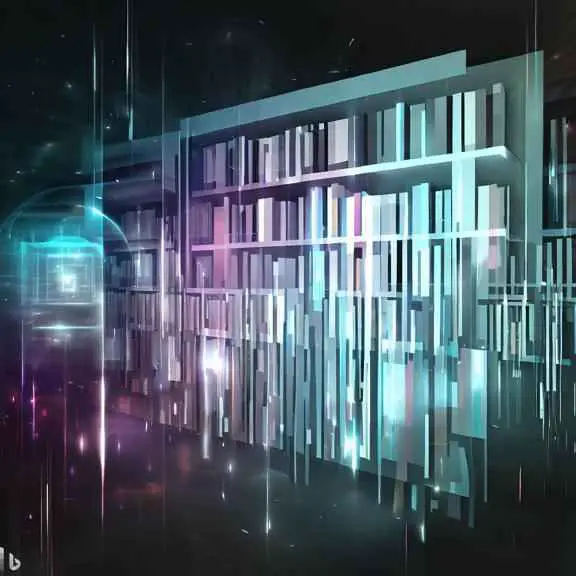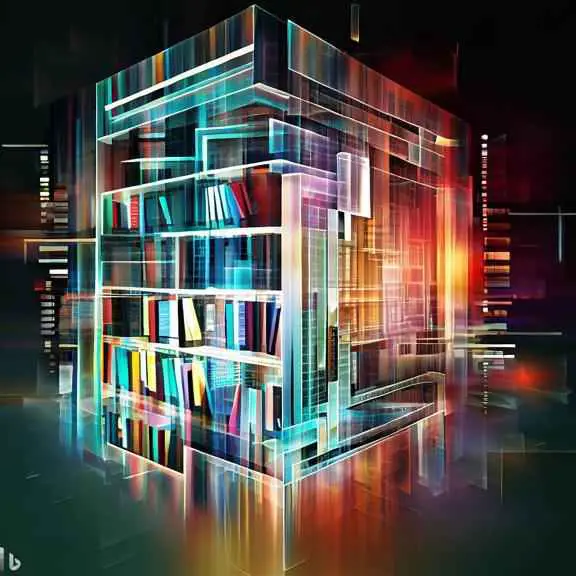Paragraph on
Library
for all Class, Words
by Education on
The library is a place where people gather to read, study, research, and explore new ideas. It is a vital resource for students, scholars…, please continue reading.

Table of Content
Ad
The Paragraph on Library
Ad
The library is a place where people gather to read, study, research, and explore new ideas. It is a vital resource for students, scholars, and anyone seeking knowledge. Libraries offer an extensive collection of books, journals, newspapers, online databases, and other materials for users to access. They also provide a quiet and peaceful environment for people to concentrate on their work, away from the hustle and bustle of the outside world.
In addition to their collections, libraries offer a range of services to their patrons. Many libraries have computers and internet access for those who don’t have these at home. They also offer programs and events, such as book clubs, lectures, and performances, aimed at engaging the community. Libraries are important community resources that promote lifelong learning and help people develop critical thinking skills.
Despite the rise of electronic devices, the library remains a vital institution in modern society. Libraries play a crucial role in ensuring equal access to information and knowledge for all, regardless of socioeconomic status. Through their collections and services, libraries empower people to learn, grow, and achieve their goals.

Questions about Library
Ad
Questions and Answers:
- What is a library?
- A library is a place where people gather to read, study, research, and explore new ideas.
- What resources does a library offer?
- A library offers an extensive collection of books, journals, newspapers, online databases, and other materials for users to access.
- What is the purpose of a library?
- The purpose of a library is to provide people with equal access to information and knowledge, promoting lifelong learning and critical thinking skills.
- What services does a library provide?
- Libraries provide services such as computer and internet access, programs and events, and quiet and peaceful environments for people to concentrate on their work.
- What are some examples of library programs and events?
- Examples of library programs and events include book clubs, lectures, and performances.
- How does a library empower people?
- Through their collections and services, libraries empower people to learn, grow, and achieve their goals.
- Are libraries still relevant in the modern age of technology?
- Yes, libraries are still relevant in the modern age of technology.
- Why are libraries important community resources?
- Libraries are important community resources because they promote lifelong learning and equal access to information and knowledge.
- Who can use a library?
- Anyone can use a library, regardless of socioeconomic status.
- What critical thinking skills can be achieved from using a library?
- Critical thinking skills that can be achieved from using a library include analysis, evaluation, and synthesis.

Vocabulary related to Library
Ad
Vocabulary words:
-
Vital - essential or important Usage - Water is vital to human existence. Synonyms - critical, crucial, necessary Antonyms - trivial, insignificant
-
Scholar - an academic or learned person Usage - The scholar gave a lecture on ancient history. Synonyms - academic, intellectual, pundit Antonyms - ignoramus, uneducated
-
Concentrate - focus one’s attention or mental effort on a particular task or object Usage - She needs to concentrate on her studies to pass her exams. Synonyms - focus, center, fixate Antonyms - distract, detract
-
Hustle and bustle - busy activity and noise Usage - She enjoyed the hustle and bustle of the city life. Synonyms - commotion, activity, uproar Antonyms - serenity, calm, tranquility
-
Empower - give authority or power to Usage - Education empowers people to make informed decisions. Synonyms - enable, authorize, permit Antonyms - weaken, disempower
-
Access - the means or opportunity to approach or enter a place Usage - The library provides easy access to information for everyone. Synonyms - entry, admittance, entrance Antonyms - exclusion, prohibition
-
Socioeconomic status - the combined measure of an individual’s or family’s social and economic standing Usage - The government’s policies aim to reduce the gap in socioeconomic status between the rich and poor. Synonyms - income level, social class, economic position Antonyms - none
-
Lifelong learning - the ongoing, voluntary, and self-motivated pursuit of knowledge for either personal or professional reasons Usage - Lifelong learning helps individuals stay up to date with new developments in their field of work. Synonyms - continuing education, self-education, personal development Antonyms - none
-
Critical thinking - the objective analysis and evaluation of an issue in order to form a judgment Usage - Developing critical thinking skills helps individuals make informed decisions and solve complex problems. Synonyms - reasoning, evaluation, analysis Antonyms - irrationality, illogical
-
Synthesis - the combination of ideas to form a theory or system
Vital - essential or important Usage - Water is vital to human existence. Synonyms - critical, crucial, necessary Antonyms - trivial, insignificant
Scholar - an academic or learned person Usage - The scholar gave a lecture on ancient history. Synonyms - academic, intellectual, pundit Antonyms - ignoramus, uneducated
Concentrate - focus one’s attention or mental effort on a particular task or object Usage - She needs to concentrate on her studies to pass her exams. Synonyms - focus, center, fixate Antonyms - distract, detract
Hustle and bustle - busy activity and noise Usage - She enjoyed the hustle and bustle of the city life. Synonyms - commotion, activity, uproar Antonyms - serenity, calm, tranquility
Empower - give authority or power to Usage - Education empowers people to make informed decisions. Synonyms - enable, authorize, permit Antonyms - weaken, disempower
Access - the means or opportunity to approach or enter a place Usage - The library provides easy access to information for everyone. Synonyms - entry, admittance, entrance Antonyms - exclusion, prohibition
Socioeconomic status - the combined measure of an individual’s or family’s social and economic standing Usage - The government’s policies aim to reduce the gap in socioeconomic status between the rich and poor. Synonyms - income level, social class, economic position Antonyms - none
Lifelong learning - the ongoing, voluntary, and self-motivated pursuit of knowledge for either personal or professional reasons Usage - Lifelong learning helps individuals stay up to date with new developments in their field of work. Synonyms - continuing education, self-education, personal development Antonyms - none
Critical thinking - the objective analysis and evaluation of an issue in order to form a judgment Usage - Developing critical thinking skills helps individuals make informed decisions and solve complex problems. Synonyms - reasoning, evaluation, analysis Antonyms - irrationality, illogical
Synthesis - the combination of ideas to form a theory or system
Usage - Synthesizing the research findings, he proposed a new theory. Synonyms - combination, integration, fusion Antonyms - separation, division

Structure of the sample "Library" paragraph
Ad
Cohesion and coherence: The paragraph about libraries is well structured and has a clear progression from defining what a library is to exploring the resources and services it offers, the purpose and importance of a library, and how it empowers people. The author has used cohesive devices such as conjunctions, transition words, and reference words to link the ideas together and achieve coherence. For example, the author uses “in addition to” to introduce and connect the discussion of library services, and “despite” to contrast the persistence of libraries with the rise of technology. This use of cohesive devices helps the reader follow the author’s train of thought and understand the overall message of the paragraph.
